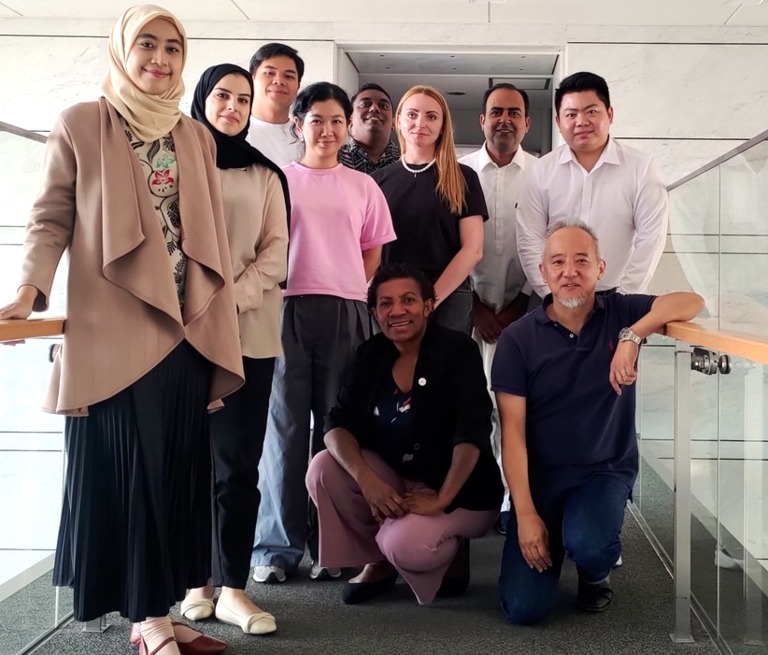
Category
Schedule
25 September – 19 October 2023 *Training period
Country / Member
- Cambodia
- Fiji
- Indonesia
- Kyrgyz
- Pakistan
- Lao People's Democratic Republic
- Palestine Territory, Occupied
- Papua New Guinea
- Ukraine
Target
For Foreign Employees Working in Japan
Participants
9 people from 9 countries/regions. Personnel with at least 3 years’ practical experience in investment promotion and business environment reform
Contents
The goal of this training course is to enable government officials involved in promoting investment to formulate investment promotion strategies.
In the training course, participants had to look at their country’s strong points and its weak points, and think about the global interaction of the country’s industries’ overall value chain. Trainees then had to choose a process for selected industries with the most potential and learn how to formulate strategies.
By visiting enterprises, the participants were able to understand each company’s overseas strategy, and its background through its industry’s structure within Japan and status in the world. Also, by visiting organizations involved in promoting inward Foreign Direct Investment (FDI) in Japan and through discussions among the trainees, measures regarding the investment environment in their country and laws relating to preferential tax systems were considered.
Schedule
25 September – 19 October 2023 *Training period
Course Leader
Prof. Kenta GOTO, Faculty of Economics, Kansai University
Client Organization
JICA
SDGs
Persons in Charge
YAMAGUCHI / OZAKI
Visits were made to a number of large enterprises that represent Japan. While being amazed at the advanced level of the facilities, the trainees were able to check what the enterprises looked for in legal systems and conditions of the countries each enterprise dealt with. The trainees were able to share the knowledge they received through their visits to the enterprises. Through this, the content of each program was absorbed like dry sand absorbing water in a desert.
Although among the trainees there were those who were not so much in charge of promoting investment but who thought more like ministers of economy, trade, and considering how to promote their country’s overall industrial environment, during a reflection session after the weekend, course leader, Prof. Goto brought the focus back on course to inward Foreign Direct Investment (FDI) for each member’s country. Prof. Goto pointed out some issues that had been overlooked and guided the trainees to a deeper understanding. This brought a conclusion to this training course, and we believe the course’s goal was adequately achieved.
